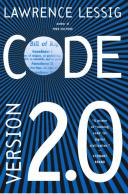Книга: Code 2.0
Part Two - Regulation By Code
Part Two - Regulation By Code
The lesson of the last part was that the interaction between commerce and government will change the effective architecture of the Internet. That change will increase the regulability of behavior on the Internet. Powder will be sprayed on the invisible men of cyberspace, and after the spray, their exploits will be more easily known.
But so far my story has not changed the basic mode by which government regulates. So far, the government threatens punishment, and that threat is intended to create the incentive for individuals to obey the government’s rule. The changes in the effective architecture of cyberspace that I have described would simply make it easier for the state to make good on its threat, and that would reduce the expected value of criminal behavior (preferably below zero). Traceability will increase effective enforcement; effective enforcement will increase the costs of deviating from a state-specified rule.
In this part, I consider a different kind of regulation. The question here is not how the architecture of the Net will make it easier for traditional regulation to happen. The issue here is how the architecture of the Net — or its “code” — itself becomes a regulator. In this context, the rule applied to an individual does not find its force from the threat of consequences enforced by the law — fines, jail, or even shame. Instead, the rule is applied to an individual through a kind of physics. A locked door is not a command “do not enter” backed up with the threat of punishment by the state. A locked door is a physical constraint on the liberty of someone to enter some space.
My claim is that this form of regulation will become increasingly common in cyberspace. And it has, moreover, a distinctive and often counter-intuitive character. The aim of this part is to explore this distinctive mode of regulation as a step to understanding more systematically the interaction between technology and policy.
- PROJECT 6.3 — Two-Dice Project
- Regulating Open Code
- Part Five - Responses
- Chapter 5. Regulating Code
- Regulating Code to Increase Regulability
- Системные переменные ROWS_AFFECTED, GDSCODE, SQLCODE, TRANSACTIONJD, CONNECTIONJD
- Appendix J. Example scripts code-base
- 9.1.1. Partitions
- Test Driver Code
- Choosing a Partitioning Scheme
- Regulating Code to Regulate Better
- Part One. “Regulability”




